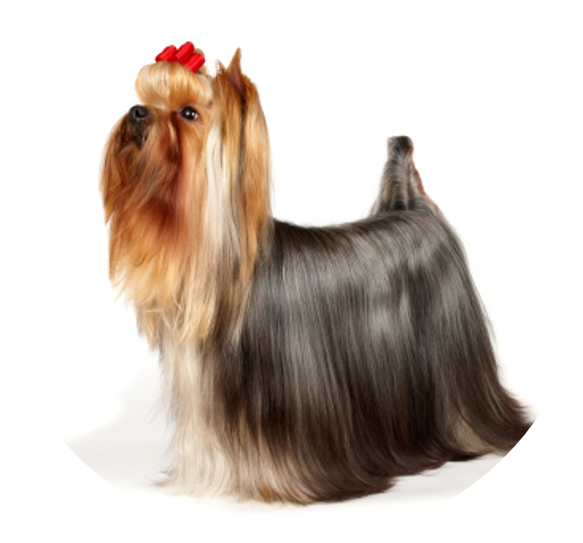 Your
Puppy's First Year:
Here's
some advice to get you through the first year with your new puppy:
Your
Puppy's First Year:
Here's
some advice to get you through the first year with your new puppy:
Owning
a new puppy:
Choose a veterinarian before bringing the puppy home.
Request recommendations for a veterinarian from other dog owners,
friends, and family members. This, I believe, is critical. You'll be
ready if an emergency arises in the first few days.
Slowly introduce your puppy to the rest of your animals. Never leave
them alone until the puppy is old enough to take care of himself.
Although you may believe that your existing pets would not hurt your
new puppy, do not put your confidence in them until they have been
acquainted. Make sure you don't forget about your existing pets and
devote all of your attention to your new puppy. They will feel
excluded. Just like children, they might sense envy toward the new
family member.
Remember that your puppy is little, so a bell on his or her harness or
collar may be a smart idea until you've gotten used to him or her being
under your feet.
Your puppy's education
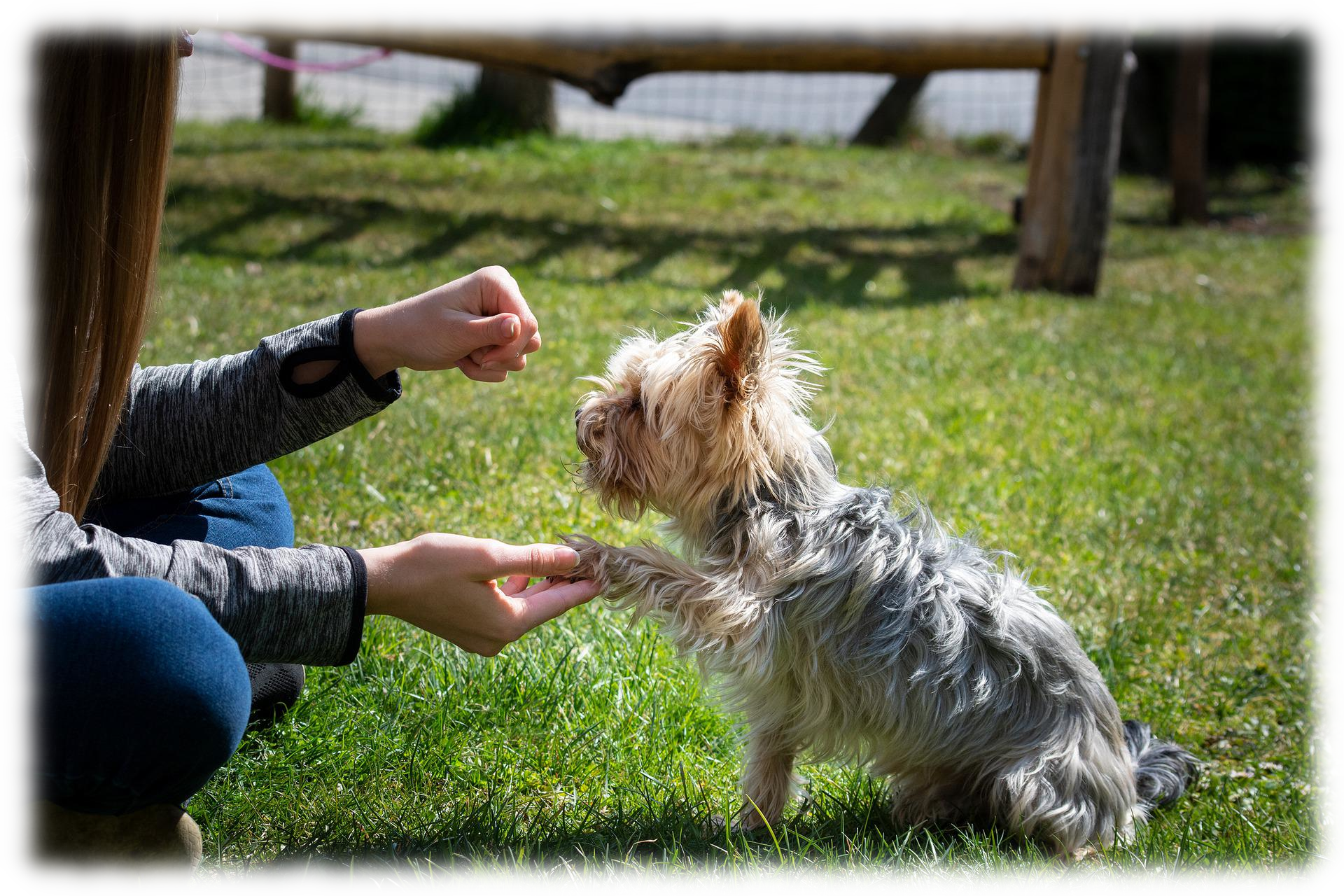 AFTER YOU AND YOUR PUPPY HAVE GROWN TOGETHER
AND THE PUPPY
HAS ADJUSTED TO HIS/HER NEW HOME, MAKE SURE YOU INTRODUCE HIM/HER TO A
LARGE NUMBER OF PEOPLE. Introduce the puppy to other pets and take it
in the car (even if it only across the street) (even if it just around
the corner). It is critical that you socialize your new "baby." You
want him to be as sociable as possible, so early socializing is
essential. I'd want you to read the following article: Socializing: Why "Later" Is Never Enough AFTER YOU AND YOUR PUPPY HAVE GROWN TOGETHER
AND THE PUPPY
HAS ADJUSTED TO HIS/HER NEW HOME, MAKE SURE YOU INTRODUCE HIM/HER TO A
LARGE NUMBER OF PEOPLE. Introduce the puppy to other pets and take it
in the car (even if it only across the street) (even if it just around
the corner). It is critical that you socialize your new "baby." You
want him to be as sociable as possible, so early socializing is
essential. I'd want you to read the following article: Socializing: Why "Later" Is Never Enough
Positive
Reinforcement
Training For Your Puppy
Right away, start training your dog. Three of the most
crucial words to learn right away are "come," "stay," and "sit." You
should also train the puppy to drop something and pick it up on cue.
"DROP IT" is a command that some individuals employ. This command is
crucial if your puppy should not pick up something. Positive
reinforcement training should be used. A "clicker" is used in some
training approaches and is quite effective. It's a lot of fun to train
clever pups.
Here are some tips for taking your puppy or dog to a dog park. It's possible that a decent Doggie Day
Care is a better option.
Positive Reinforcement Obedience Training
When
it comes to dog training we absolutely love BAXTER & Bella, which
offers and online program that is easy to use and fun to follow. What's
more, it's available everywhere you have an internet connection and on
any device you want to use.Good news... we have teamed up with them to
provide you with an instant 25% off discount for lifetime access to
their Online Puppy School! It includes a STEP-BY-STEP PROGRAM to
follow, CLASSES & COURSES to attend, GAMES to play, ACTIVITIES for
successful socialization, unlimited LIVE! HELP with their team of
professional trainers, as well as so much more! We highly recommend it
and you can save 25% instantly by entering discount code: SETAREH
LEARN
MORE about BAXTER & Bella HERE: https://www.baxterandbella.com/learn-more
Puppy Mouthing & Biting
Stop your dog from mouthing, biting, or chewing on
your fingers and toes. Here's an excellent article: Living with Jaws: Survival Puppy Mouthing
& Another excellent article Teach Bite Inhibition I've read a lot of
puppy dog novels, and "Bones
Would Rain from the Sky"
is an A+++. The author is Suzanne Clothier. It's one of the very
greatest books I've ever read! She did an excellent job writing the
book, and it's a lot of fun to read! I really can't say enough good
things about it!! Patricia McConnel PhD is another A+++ author. EVERY
SINGLE ONE OF HER BOOKS IS AMAZING!!!

Grooming Needs For Your Puppy
Your little dog will
most likely need to be washed twice a month. I either wash them in the
kitchen sink or take them with me into the shower. After they are
clean, I educate them to wait in the corner until I am clean as well.
It's then time to dry off! That's when the fun begins! Every 2-3
months, he'll require grooming (hair trimmed, ears cleaned, and nails
clipped). Trim the hair around the puppy's small buttocks as
needed to prevent poopy from becoming trapped. Both Andis and Oster
produce excellent grooming products.
Ear Care
Hair grows naturally within the ears of non-shedding dog breeds. Hair
in the ear can make it harder for your dog's immune system to keep
yeast and bacteria under control, obstruct the passage of air that
keeps the ear canal dry, and trap dirt, extra ear wax, and debris
within. Ear plucking on a regular basis can help avoid ear infections
and moisture build-up by reducing the amount of hair obstructing the
canal. Trim the inside of the dog's ear flap and the hair in the ear
canal with your groomer's scissors. The hair will not obstruct the flow
of air or become caught in any ear wax if it is kept short.
Watch this Youtube Video on How to Clean
Ears: https://www.youtube.com/watch?v=5C39A9UU720
Items
to have on hand before you get your puppy
See our Puppy Supplies Page
Canine
Parasite Prevention: Fleas, Worms, Coccidia, Giardia, Heartworms
Even a seemingly healthy puppy might be infected with parasites. Even
if the puppy has already had a fecal exam by the breeder's physician,
it's always a good idea to have a fecal exam done by your veterinarian
when you obtain a new puppy. I would have sold you the dog on the basis
of trust, but as I previously stated, moving to a new home may be
traumatic. Parasites might become more visible as a result of stress.
During mosquito season, don't forget to give your new dog a heartworm
preventive! Because this can only be obtained from a
veterinarian, you should explore your alternatives with him or her. For
fleas, I like Revolution. Heartworms and fleas are well-covered with
Revolution. Much more effective against fleas than Frontline, which has
becoming less effective.Although it does dry the skin, I find that
Diatomaceous Earth works very well as a natural method to flea control
when used once or twice a month during flea season.
I'm wary about Trifexis, Simparica and other oral flea/tick
medications. Please note that unless you reside in the south where it
does not freeze in the winter, you do not need to administer these flea
and heartworm medications all year. Heartworms are transmitted by
mosquitoes. There's no need to feed your dog these substances if
they're not present. Flea chemicals are the same way. Examine your
puppy's or dog's skin if they are scratching excessively for no obvious
cause. If it looks to be dry, give them 1-2cc of Fish Oil
every day. In a week, you should see a difference. If not, keep using
the oil and consult your veterinarian about probable food or treat
allergies.
Coccidia is a parasite, not a worm. It's a small parasite that lives
inside your body (protozoan). Coccidia can be brought on by stress. A
puppy may get a negative fecal check result from the veterinarian, look
healthy, but develop signs of coccidia as soon as he is adopted. Albon,
a coccidia treatment, does not truly kill the parasite. It cleanses the
coccidia out of the puppy's digestive tract. Any leftover coccidia will
eventually be killed by the puppy's immune system. The immune system of
a young puppy is still developing, thus it takes time for the dog and
its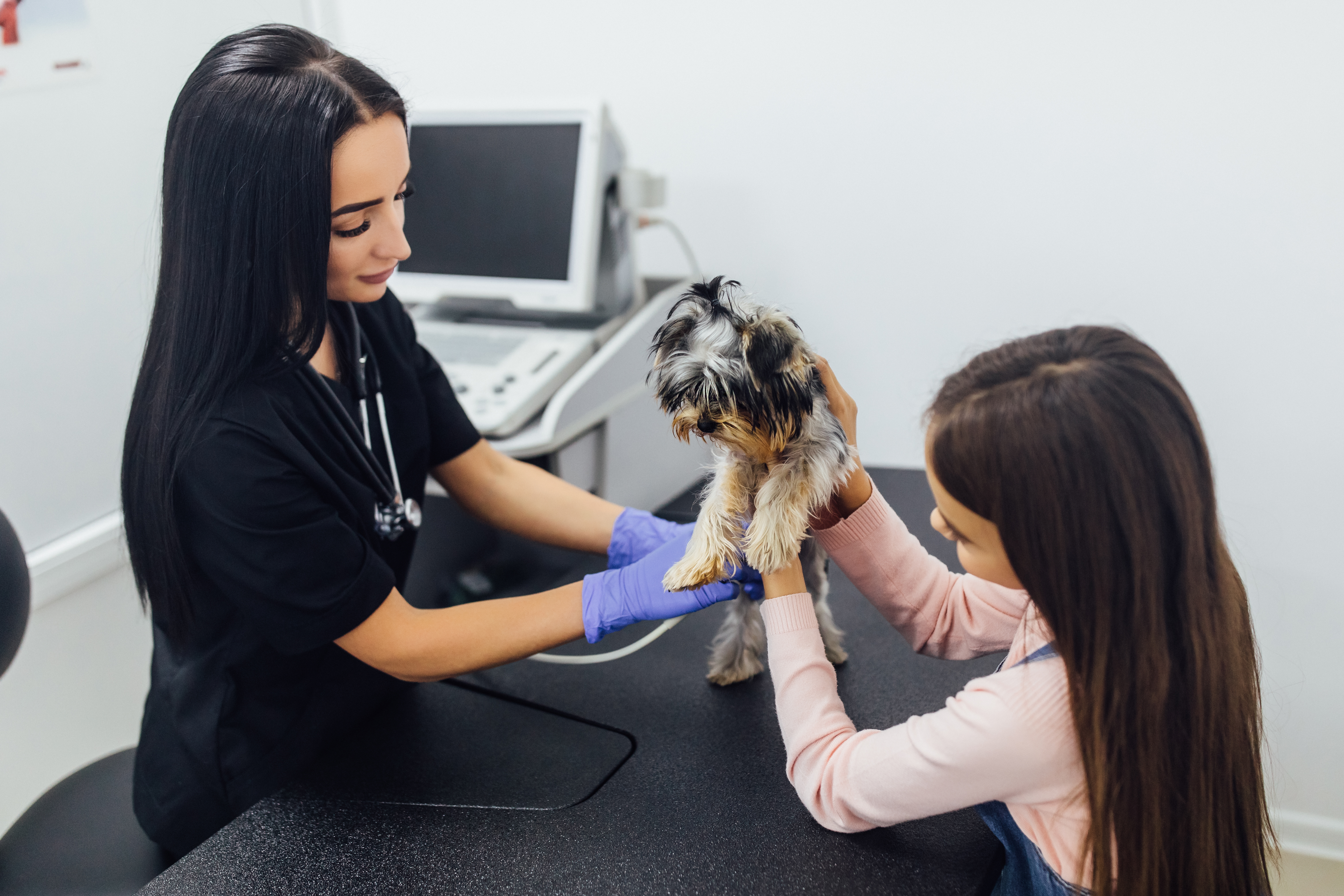
immune system to grow. Coccidia is present in the majority of adult
dogs, but they also have the antibodies to combat and control it.
If a puppy with coccidia is not properly cared for and treated, it will
develop watery diarrhea and dehydrate fast! Coccidia can become a
significant problem at this point, when the coccidia reproduce
unchecked and the puppy becomes unwell and dies. Toltrazuril is
given to all of my puppies to help prevent Coccidia infections.
Giardia can also infect puppies. Normally, this parasite lives in the
earth. Pups maintained in sterilized cages and concrete runs are
unlikely to be exposed, whereas puppies raised on the ground are
frequently. This widespread parasite might be difficult to identify. A
vet employing the standard "floatation" approach of fecal screening
would most likely miss it. If the puppy has been exposed to Giardia,
the "Snap test" will reveal it. Although my pups' snap test indicates
that they have been exposed, they should not be showing any signs. It
can cause diarrhea and loss of appetite; if a puppy has severe giardia
and is left untreated for 3-4 days, it is likely to die. If you
provide the Panacur that I send with your new puppy for giardia
prevention as advised, you should have no issues about giardia. If your
puppy receives a positive test and your veterinarian wants to raise or
lengthen Panacur's dosage. Pay attention to what he or she says. Even
if the puppy is asymptomatic, some veterinarians prefer to treat it.
That's all right. Your dog will not be harmed by the medication.
Pet doctor photo
created by artursafronovvvv - www.freepik.com
To keep on hand, get a bottle of this:
Have Safeguard
Dewormer 125mL
(also known as Panacur) shipped to you. This medication is labeled for
goats, but it's the same medication for dogs — it's simply easier to
administer appropriately in liquid form! Worm your puppy (1ml per 5lbs)
every three months at first, then every six months for the rest of his
life. This Safeguard/Panacur pill will also be included in your puppy
kits to prevent giardia infection during their first week with you. If
your puppy's "pudding-like stools persist after you've finished what
I've supplied you, keep using this medicine (doing double the amount
I've sent) for another week. With the exception of tapeworm, this
also inhibits all worms.
Fleas can transmit tapeworms to puppies. Tape worm eggs are eaten by
immature fleas, and pups can develop tape worms if they ingest even one
infected flea. Because the tapeworm is segmented and flat, you'll
observe little, flat, cream-colored bits that are less than half an
inch long. These are the only worms visible with the naked eye (except
for the spaghetti-like roundworms). The most typical sighting of them
is in their feces. Tapeworm eggs can be found in these moving parts.
They appear like uncooked rice when they're dry. Loose stools can be
caused by tapeworms. Tapeworms require a specific medication from your
veterinarian — only one dosage. Unless your puppy has tapeworms, you do
not need to treat him.
Although roundworms are more frequent, they will not be seen in your
puppy's feces. These can be avoided by using the above-mentioned
Safeguard/Panacur on a regular basis. These spaghetti-like worms can
only be seen if you treat your puppy/dog for them, and then they come
out in the stool.
Never provide aspirin without first consulting your veterinarian.
Non-aspirin analgesics should never be given to an animal.
Yearly Vaccinations for
Dogs
Please be aware that veterinarians have recommended regular
immunizations for animals for many years. It's become second nature.
Some of these behaviors aren't always beneficial. Have you had annual
vaccines your entire life, or did you "finish" them as a youngster and
get lifelong immunity? Right. I recommend puppy vaccines, followed by a
booster at one year of age, and then titers. Those "yearly" vaccines
are normally only required every 3 to 5 years at the most. Please read
the following: Yearly Vaccinations vs. Titer Testing
Spay/Neuter your Puppy
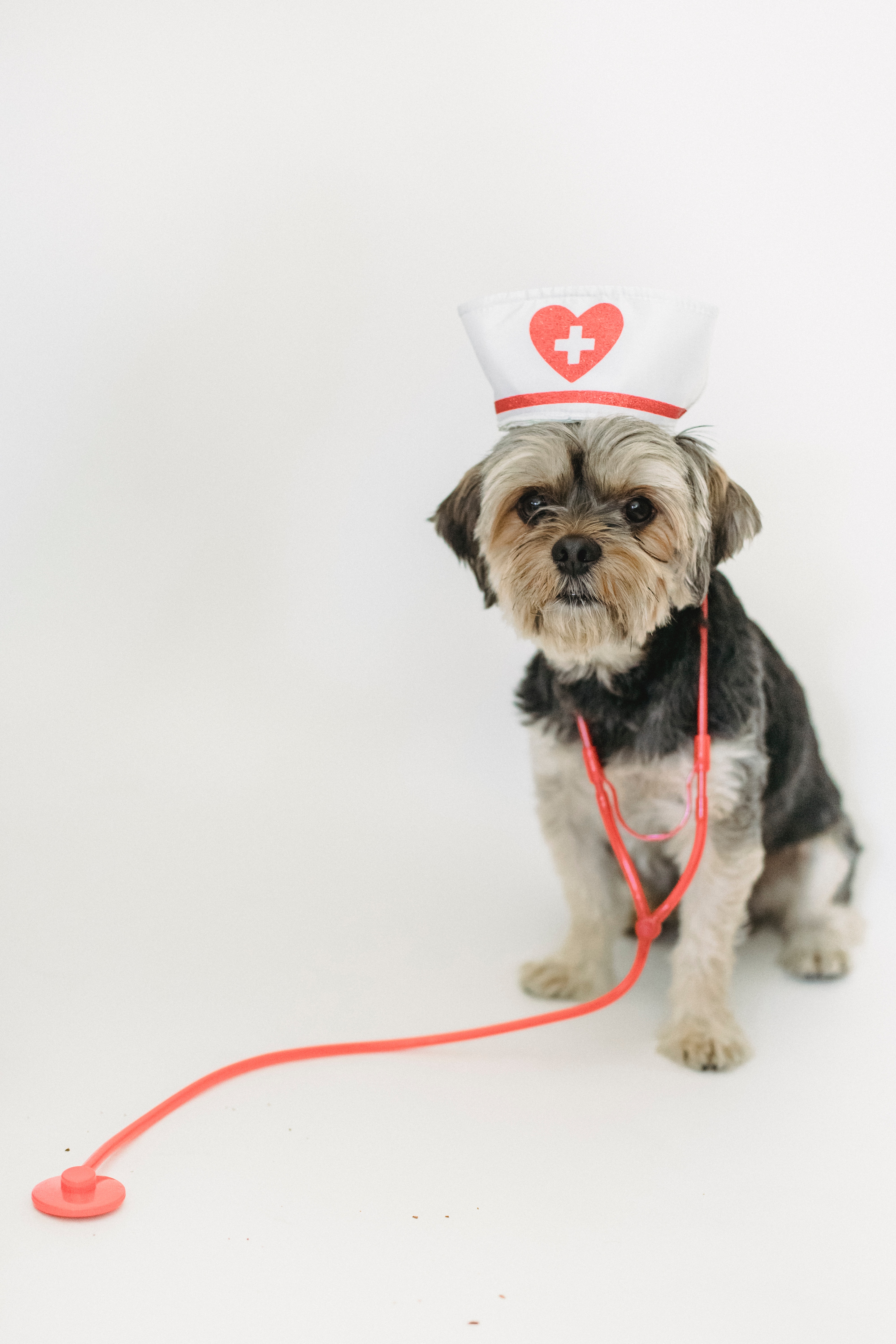 Most
veterinarians used to wait until your pet was a year old before spaying
or neutering it. As a result, most individuals would choose a female
pet as an inside pet. To eliminate, females will "squat." A man, on the
other hand, will elevate his leg and urinate on your — well,
"everything." Most
veterinarians used to wait until your pet was a year old before spaying
or neutering it. As a result, most individuals would choose a female
pet as an inside pet. To eliminate, females will "squat." A man, on the
other hand, will elevate his leg and urinate on your — well,
"everything."
However, we are fortunate to be alive in this era. Veterinarian
research has caught up with medical technology, and dogs and cats may
now be spayed or neutered at a younger age. This is neither detrimental
nor advantageous to the pet in the long term. If you spay or neuter
your pet, you'll have a lower risk of cancer and other ailments. After
6 months of age, I recommend spaying/neutering.
Some veterinarians want to perform it at a younger age; please don't do
it for my tiny puppies. Simply inform your veterinarian that you wish
to wait until your dog is 6-8 months old.
When males are neutered at this age, they will have no idea that they
are male and will (generally) squat to pee like a female, making inside
training simple. Small males, believe me, are just as sweet and caring
as little girls!
Please remember you signed a contract stating that your puppy will be
spayed/neutered by 1 year of age. Remember to send me proof
within 10 days of the surgery. I require a picture of the
incision as well as the invoice and/or medical record from the
Veterinarian.
Insurance for pets
I strongly advise you to purchase Pet Insurance for your puppy. Your
puppy comes with 30 days of Complimentary Puppy Insurance through
Trupanion. Please Visit Our Insurance
Page to Learn More. There are several businesses to choose
from. Many breeders and dog owners strongly suggest "Trupanion" and "Healthy Paws." Make certain to incorporate this in
your study. Here's a link to a recent online comparison of pet health
insurance: https://www.usnews.com/insurance/pet-insurance
Article on “Reverse
Sneeze” in Dogs:
“My dog has spells where she snorts and gasps while taking deep
breaths, panting in between. Sometimes the spells last 10 minutes or
more and happen a couple of times a day. Then she might not have one
for another month or more. What is this and what do I do?”
It sounds as if you are describing what many veterinarians refer to as
a “Reverse Sneeze”. The formal term for the behavior is paroxysmal
respiration. It occurs more often in small breeds or breeds with small
heads, such as Lhasa Apso and the Boston Terrier, but any dog can
experience it. It usually occurs as an isolated event, no more than
once or twice a day, and the dog is normal as soon as it is over. No
one is sure what causes it, although dogs with allergies or
upper-respiratory infections seem more often affected. As long as it’s
not making your dog terribly uncomfortable, there’s no reason to worry.
If your dog seems distressed while it is happening, try gently placing
a finger over each of her nostrils so that she can’t breathe through
her nose and must use her mouth. This creates a vacuum in the sinuses
and seems to relieve many dogs. (I try and hold the dog and say
soothing things to them to calm and quiet them down) If the problem is
more severe or if you see discharge from her nose when this happens,
have your veterinarian examine her. 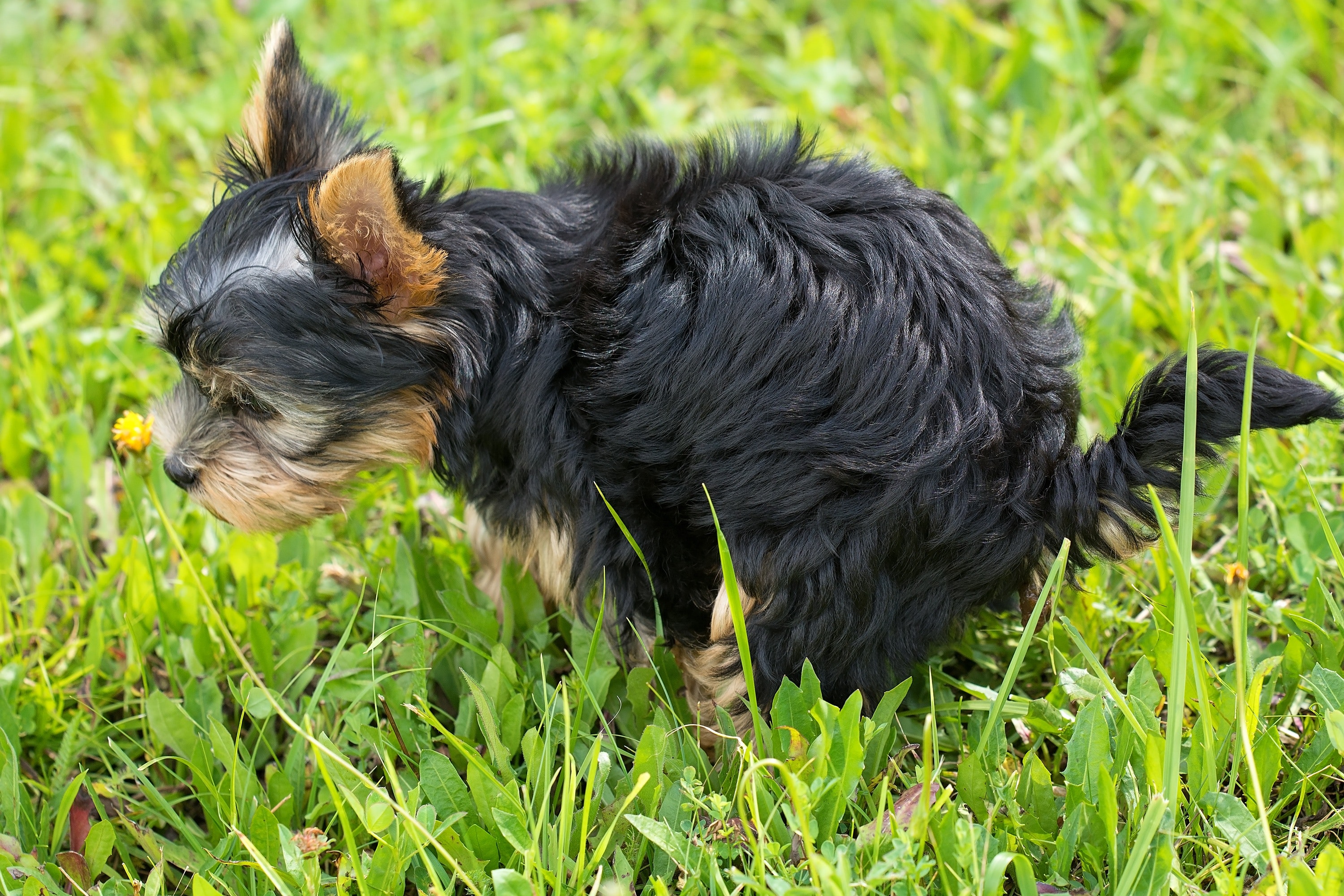
Leslie Sinclair, DVM
Housetraining Your Puppy
I've now dedicated an entire page to my preferred method for quickly
housebreaking a puppy, even if you're frequently gone at work. Simply click on this link to get to my website
on House Training. I also recommend my very favorite puppy
house-training book, Patricia
McConnell's "Way To Go."
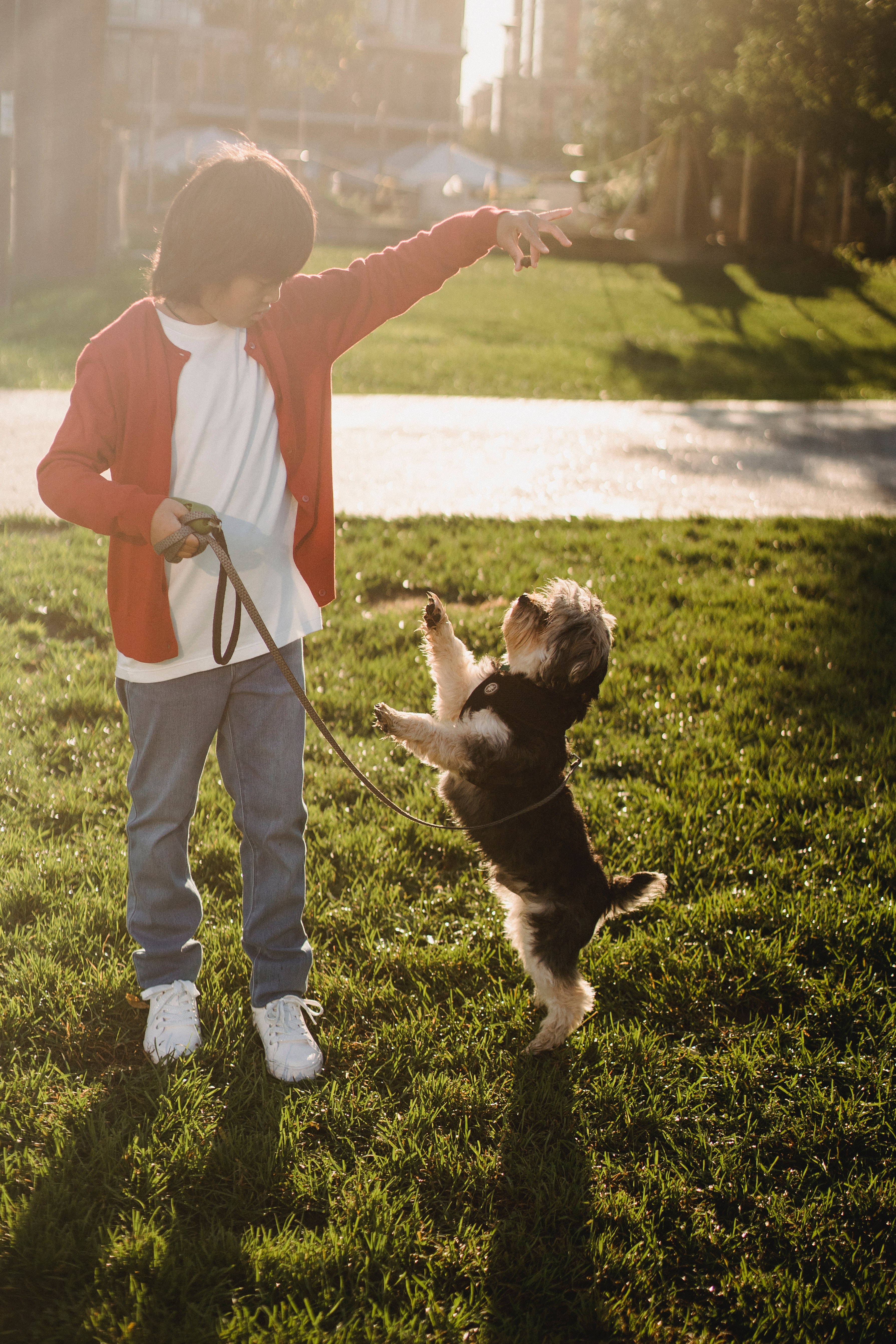 Doggy Manners - Jumping On You &
Your Guests
While leaping up on you as a puppy may
be "sweet," please teach your dog appropriate manners. Your dog will be
grateful for the rest of his or her life. Here are a couple of
articles on the subject AKC Jumping Article & Preventive Vet Jumping Article.
If you like it when your puppy or dog jumps up on you, train them to do
so just when you tell them to. To assist you, here is one of my
FAVORITE authors: Puppy
Primer
Tear
Stains
Our favorite ways to prevent tear
stain is to use Filtered or bottled water and a high quality
diet. See our Nutrition Page to see
what food we recommend. Since we started feeding this food, we
have no tear stains in our dogs. If you have a problem with
tear stains these are our favorite products to help Angel Eyes Chews
& Angel Eyes
Wipes
I'll
be home soon! - How to Prevent and Treat Separation Anxiety in Your
Puppy or Dog
This dog training guide explains how
to be a good leader and prevent fear or dominance-related
aggressiveness. This pamphlet explains how to be a natural leader to
your dog, just like any excellent teacher or parent, and educate your
dog that being nice is pleasant. Separation Anxiety: Preventing and Treating Doggy Manners - Jumping On You &
Your Guests
While leaping up on you as a puppy may
be "sweet," please teach your dog appropriate manners. Your dog will be
grateful for the rest of his or her life. Here are a couple of
articles on the subject AKC Jumping Article & Preventive Vet Jumping Article.
If you like it when your puppy or dog jumps up on you, train them to do
so just when you tell them to. To assist you, here is one of my
FAVORITE authors: Puppy
Primer
Tear
Stains
Our favorite ways to prevent tear
stain is to use Filtered or bottled water and a high quality
diet. See our Nutrition Page to see
what food we recommend. Since we started feeding this food, we
have no tear stains in our dogs. If you have a problem with
tear stains these are our favorite products to help Angel Eyes Chews
& Angel Eyes
Wipes
I'll
be home soon! - How to Prevent and Treat Separation Anxiety in Your
Puppy or Dog
This dog training guide explains how
to be a good leader and prevent fear or dominance-related
aggressiveness. This pamphlet explains how to be a natural leader to
your dog, just like any excellent teacher or parent, and educate your
dog that being nice is pleasant. Separation Anxiety: Preventing and Treating
Patricia McConnel's concepts and exercises (like with all of her books)
are based on how dogs interact with one another, making them incredibly
effective and simple for your dog to learn. Patricia McConnell's books
are a must-have for every dog lover's collection, and they're
especially popular with humane societies, rescue groups, and veterinary
clinics! ALL OF HER BOOKS ARE AMAZING and I HIGHLY RECOMMEND THEM!!!
Trisha's blog, "The
Other End of the Leash,"
is one of my favorites and I strongly suggest it. It's both educational
and entertaining! She has a great understanding of pets and their
owners!
|

 AFTER YOU AND YOUR PUPPY HAVE GROWN TOGETHER
AND THE PUPPY
HAS ADJUSTED TO HIS/HER NEW HOME, MAKE SURE YOU INTRODUCE HIM/HER TO A
LARGE NUMBER OF PEOPLE. Introduce the puppy to other pets and take it
in the car (even if it only across the street) (even if it just around
the corner). It is critical that you socialize your new "baby." You
want him to be as sociable as possible, so early socializing is
essential. I'd want you to read the following article:
AFTER YOU AND YOUR PUPPY HAVE GROWN TOGETHER
AND THE PUPPY
HAS ADJUSTED TO HIS/HER NEW HOME, MAKE SURE YOU INTRODUCE HIM/HER TO A
LARGE NUMBER OF PEOPLE. Introduce the puppy to other pets and take it
in the car (even if it only across the street) (even if it just around
the corner). It is critical that you socialize your new "baby." You
want him to be as sociable as possible, so early socializing is
essential. I'd want you to read the following article: 

 Most
veterinarians used to wait until your pet was a year old before spaying
or neutering it. As a result, most individuals would choose a female
pet as an inside pet. To eliminate, females will "squat." A man, on the
other hand, will elevate his leg and urinate on your — well,
"everything."
Most
veterinarians used to wait until your pet was a year old before spaying
or neutering it. As a result, most individuals would choose a female
pet as an inside pet. To eliminate, females will "squat." A man, on the
other hand, will elevate his leg and urinate on your — well,
"everything."
 Doggy Manners - Jumping On You &
Your Guests
Doggy Manners - Jumping On You &
Your Guests



